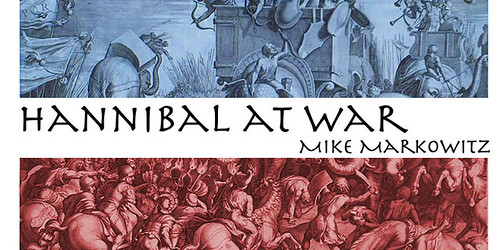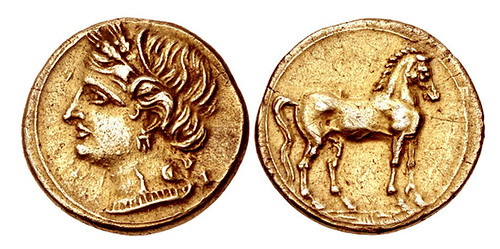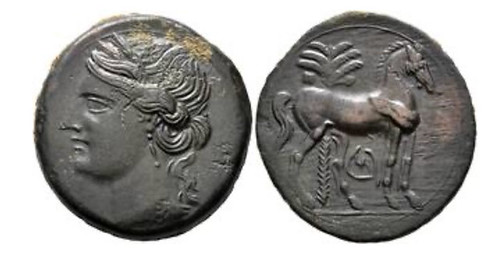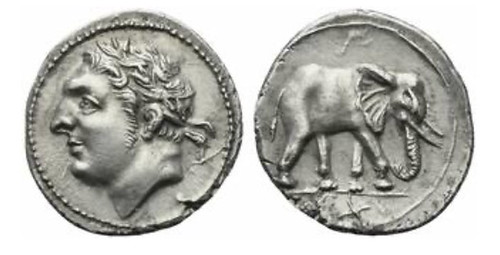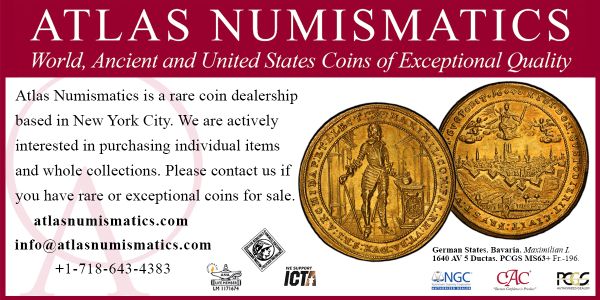
PREV ARTICLE
NEXT ARTICLE
FULL ISSUE
PREV FULL ISSUE
COINS OF CARTHAGE DURING HANNIBAL'S WAROn February 28, 2023, Mike Markowitz published a CoinWeek article on the coins of Carthage during Hannibal's war with Rome. Here's an excerpt - see the complete article online for more information. -Editor
BORN IN 247 BCE at Carthage (near modern Tunis in North Africa), Hannibal Barca is remembered as one of the greatest military commanders of ancient history. His father, Hamilcar Barca (lived 275-228 BCE), led Carthaginian forces in Sicily during the 23 year-long First Punic War, defeating a revolt by mutinous mercenaries in the aftermath of that disastrous conflict. Beginning in 237 BCE, he built a new Carthaginian empire; numismatists call it the CARTHAGE, Second Punic War. Circa 220-205 BCE. EL Three-eighths Shekel (16mm, 2.77 g, 12h). Carthage mint. Classical Numismatic Group, Triton XX, 10 January 2017, Lot: 83, realized: $2,500. CARTHAGE. Second Punic War. Circa 220-215 BCE. Trishekel (Bronze, 31 mm, 18.72 g, 12 h). The coinage of Carthage during Hannibal's life was based on the Phoenician shekel weight standard of 7.2 grams (or 7.5 grams for gold). Coins in circulation included the 3/8 shekel (about 2.8 grams) in electrum, an alloy of about 50% gold (12 kt or less) and silver. Like many Carthaginian coins, it bore the image of the goddess Tanit on the obverse, and a standing horse on the reverse. Greeks and Romans identified Tanit with the goddess Persephone, or Kore.
The standard silver coinage was heavily debased with copper and lead (a And let's not forget the elephants... -Editor Carthaginians in the Mediterranean, Sicily, Akragas, Half Shekel, ca. 213-210 BCE; AR (g 2,93; mm 18; h 12); Bertolami Fine Arts – ACR Auctions > Auction 87, 14 December 2020, Lot: 60, realized: £4,400 (Approx. $5,865).
To read the complete article, see:
Wayne Homren, Editor The Numismatic Bibliomania Society is a non-profit organization promoting numismatic literature. See our web site at coinbooks.org. To submit items for publication in The E-Sylum, write to the Editor at this address: whomren@gmail.com To subscribe go to: https://my.binhost.com/lists/listinfo/esylum All Rights Reserved. NBS Home Page Contact the NBS webmaster 
|
